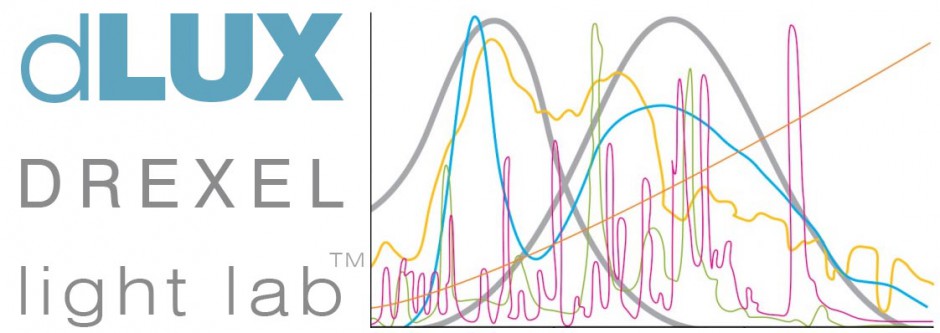National Geographic presents a documentary about the society-wide implications of sleep deprivation. This 90-minute feature touches on the biological aspects of sleep, and is worth watching for anyone concerned with individual and public health.
Dancing Pedestrian Signal Increases Safety
As part of a recent ad campaign, the automaker smart retrofitted a traffic signal in Lisbon, Portugal with a live mapping of a person dancing nearby. This brought more attention to the signal and even encouraged some waiting pedestrians to dance, dramatically reducing the risk of an accident. How else can we use light to increase safety in our cities?
Light, Not Lighting
Recently, we changed our name from dLUX Lighting Lab to dLUX Light Lab. What’s the big deal, lighting vs. light? Why the switch? Normally, lighting refers to the equipment used to supply light, the use of light for a certain purpose, or a particular quality of light. We see light as all of this, but way more. When used well, light can contribute to good health, guide the way to safety, and help evoke our strongest emotions. We’re fascinated with all aspects of light, from the minute technical details to its broad impacts on society, and everything in between. We seek to better understand how natural and artificial light can coexist harmoniously, how light can entertain us both emotionally and psychologically, and how light can guide the way without disturbing our own and others’ health and well-being. Thus, the dLUX Light Lab.
International Summer School on Biocomplexity Recap
The 13th NSF International Summer School on Biocomplexity, Biodesign, and Bioinnova at Bogazici University in Istanbul in June brought together 27 students and six esteemed lecturers, all performing cutting-edge biological and bioengineering research. The main objective of the summer school was to expose the students to new approaches, challenges, and directions in biological and molecular engineering research and to accelerate the integration of these concepts. The conference promoted the understanding of highly complex, interconnected biological systems and facilitated collaborations among the participants and lecturers.
Given the dLUX Light Lab’s primary interest in the effects of the immediate environment on health outcomes, the International Summer School on Biocomplexity was a great opportunity to expose our research to those working in similar, but diverse, areas. I received useful feedback and interest in cross-disciplinary, inter-university research partnerships. In addition, the lectures and discussions greatly improved my knowledge and understanding of some of the most prominent cutting-edge biomedical developments.
Beyond academic activities, the summer school exposed participants to Turkey’s unique geography and cultural heritage as well as its role as a dynamic, modern society. This included exclusive tours of some of Istanbul’s most important treasures, a classical music concert, and a wide variety of fresh, regional culinary creations. The summer school itself took place near the beautiful beach town of Kilyos, situated at the northern tip of the Bosphorus, with several excursions into Istanbul. The organizers provided an abundance of lighthearted activities, parties, free time, and world cup watching to complement the deeply scientific material presented at the conference. The relationships formed at the summer school are more than professional, but strong enough to be considered long-lasting, close friendships.
The Biocomplexity Summer School experience contributes to Drexel’s global initiatives, including the facilitation of productive, mutually beneficial inter-university and international research collaboration, as well as the promotion of novel technologies to improve public health and overall well-being. Drexel’s current strategic plan highlights increased connections and collaborations with Turkey as a short-term goal. It is clear that the summer school organizers want to make Turkey a center for high-tech collaboration on biomedical research and development, and the relationships formed here are the first steps toward achieving this ambitious objective.
Dr. Ellis and Dr. McEachron Present Chronobioengineering: A Talk at the 2012 Academy of Neuroscience for Architecture Annual Conference
Welcome to the Future of Light
Since its first commercial success over 100 years ago, the electric light has quite literally changed the world, perhaps more than any other innovation. It paved the way for many of the things we take for granted today: fast transportation, reliable electricity grids, and safe cities, to name a few. During those 100 years, improvements have focused on increasing efficiency, quality, and visual acuity while decreasing cost – all very worthwhile goals. At the same time, the simplicity and reliability of electric lighting has enabled us to extend day into night, wreaking havoc on our bodies’ internal clocks, which have worked so well for millennia.
It’s time to change that. Using the latest in semiconductor-based lighting technology and internet-connected control systems, the dLUX Lighting Lab is finding out what makes light not only energy efficient, high quality, and affordable, but also ideal for our health. We envision a future of light that is adaptable, personalizable, and intuitive, optimized for individual and collective well-being. We’re pushing toward that future by dialing in many characteristics of light, most of which have been overlooked. Our diverse team of researchers and partners know that the journey won’t be easy or straightforward, but we are convinced the cause is worth the effort (and occasional lack of sleep). Whether you are eight or eighty years old, in perfect health or afflicted with a disorder, we believe high-quality light is essential for everyone.
The Blog Has Arrived
The dLUX team has been working extremely hard to help change the future of light, and it’s time to share what we’re doing with the world. Watch the space for lots of updates!




